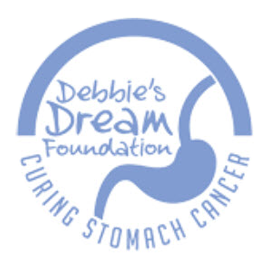Abstract: The tumour microenvironment (TME) is vital to tumour development and influences the immunotherapy response. Abnormal nucleotide metabolism (NM) not only promotes tumour cell proliferation but also inhibits immune responses in the TME. Therefore, this study aimed to determine whether the combined signatures of NM and the TME could better predict the prognosis and treatment response in gastric cancer (GC). 97 NM-related genes and 22 TME cells were evaluated in TCGA-STAD samples, and predictive NM and TME characteristics were determined. Subsequent correlation analysis and single-cell data analysis illustrated a link between NM scores and TME cells. Thereafter, NM and TME characteristics were combined to construct an NM-TME classifier. Patients in the NMlow/TMEhigh group exhibited better clinical outcomes and treatment responses, which could be attributed to the differences in immune cell infiltration, immune checkpoint genes, tumour somatic mutations, immunophenoscore, immunotherapy response rate and proteomap. Additionally, the NMhigh/TMElow group benefited more from Imatinib, Midostaurin and Linsitinib, while patients in the NMlow/TMEhigh group benefited more from Paclitaxel, Methotrexate and Camptothecin. Finally, a highly reliable nomogram was developed. In conclusion, the NM-TME classifier demonstrated a pretreatment predictive value for prognosis and therapeutic responses, which may offer novel strategies for strategizing patients with optimal therapies.
Abstract: Background Despite the lack of decisive research advocating neoadjuvant chemotherapy, there is a broad consensus that it is beneficial for gastric cancer in terms of survival. However, there is no comparative research on whether it is similarly helpful in senile patients with the age above 75 years old. Here we compared the survival rate between neoadjuvant plus surgery with direct surgery.
Read More?>
Combination treatment with tislelizumab (BGB-A317) and chemotherapy resulted in superior overall survival (OS) vs chemotherapy in the treatment of patients with advanced unresectable metastatic gastric or gastroesophageal (GEJ) adenocarcinoma regardless of PD-L1 status, according to a press release on findings from the phase 3 RATIONALE 305 trial (NCT03777657).
Treatment with zolbetuximab (IMAB362) and modified folinic acid, fluorouracil, and oxaliplatin (mFOLFOX6) may represent a new standard of care in first-line CLDN18.2-positive, HER2-negative locally advanced unresectable or metastatic gastric or gastroesophageal junction (GEJ) adenocarcinoma, according to data from the phase 3 SPOTLIGHT trial (NCT03504397).
When BeiGene and Novartis announced a partial trial win for tislelizumab in stomach cancer, doubts started to circulate around the PD-1 inhibitor’s potential. Now, the partners have come back with broader success.
ROCKVILLE, Md. and SUZHOU, China, April 17, 2023 /PRNewswire/ — Innovent Biologics, Inc. (“Innovent”) (HKEX: 01801), a world-class biopharmaceutical company that develops, manufactures and commercializes high quality medicines for the treatment of oncology, autoimmune, metabolic, ophthalmology and other major diseases, announced the final analysis results of ORIENT-16, the Phase 3 study evaluating sintilimab in combination with chemotherapy compared to chemotherapy for the first-line treatment of advanced or metastatic gastric or gastroesophageal junction (G/GEJ) cancer at the American Association for Cancer Research (AACR) Annual Meeting 2023 (Abstract CT078).
Image by KieferPix on Shutterstock
Being diagnosed with stomach cancer can be overwhelming. The thought of undergoing tests and medical scans can add more stress and worry, leading to scanxiety. Patients can manage this with self-care techniques like practicing mindfulness, engaging in physical activities, staying connected with loved ones, and seeking emotional support.
It’s crucial to communicate with healthcare professionals, prioritize health, and be kind to oneself during this difficult time.
What Is Scanxiety?
Scanxiety is the fear and apprehension cancer patients can feel surrounding medical scans. Scans like X-rays are essential for detecting bone abnormalities and other significant changes in important organs caused by cancer.
What Causes Scanxiety?
The anticipation before getting a scan, undergoing the scan itself, and the unpredictability of what the scan might reveal can create a wave of anxiety and uncertainty in patients. Various factors, such as unpleasant past scan experiences, anxiety about cancer growth or recurrence, unpredictability about the future, and treatment plan effects, can cause scanxiety.
Managing scanxiety is crucial for cancer patients, as excessive anxiety levels can affect treatment results and quality of life. Increased heart rate, sweating, difficulty sleeping, irritability, and panic attacks are common symptoms of scanxiety.
The good news is that there are many mental health and wellness resources and self-care techniques that can help patients cope with scanxiety. Being open with healthcare professionals about any doubts or concerns regarding the scan or treatment plan is essential.
Don’t let scanxiety take over your life – take control with these helpful self-care techniques.
10 Self-Care Strategies for Coping With Scanxiety During Cancer Treatment
Taking control of your scanxiety is about prioritizing your well-being and maintaining healthy habits. This section will discuss ten self-care strategies to help alleviate anxiety and improve overall well-being.
1. Fuel Your Body: The Power of a Nutrient-Rich Diet
Consuming a nutrient-rich, low-sodium diet, including fruits, vegetables, whole grains, lean protein, and healthy fats, is essential. Ensure you stay hydrated by drinking plenty of water and avoiding caffeine and alcohol, which can increase anxiety and disrupt sleep.
2. Get Moving: The Importance of Exercise for Physical and Mental Health
Regular exercise is crucial for maintaining physical and mental health. Exercise can help reduce stress and anxiety, improve sleep quality, and boost mood. Engaging in physical activity for at least 30 minutes a day, such as walking, jogging, cycling, or swimming, is recommended.
3. Sleep Away the Stress: Tips to Improve Your Sleep for Better Coping
Getting enough sleep is vital for managing scanxiety. Sleep is a time when the body and mind can repair and recharge. Try to get at least 7–8 hours of sleep each night.
Strategies to improve sleep include:
- Establishing a regular sleep schedule.
- Avoiding electronics before bedtime.
- Creating a relaxing sleep environment.
4. Connect With Your Mind and Body: How Yoga Can Ease Scanxiety During Cancer Treatment
Adding yoga to your daily routine can be a powerful way to deal with stress, get better sleep, and improve overall health. By practicing yoga, you can learn how to connect your mind, body, and breath, creating a sense of calm and inner peace.
It can also help relieve side effects of cancer treatment, like fatigue, pain, and surgery recovery. Whether you attend a yoga class or practice at home, making time for yoga can help you feel more grounded and centered.
5. Master Your Mind: Find Inner Peace With Meditation
Meditation is a simple technique that focuses the mind on a specific object, thought, or activity. It can help reduce anxiety, improve mood, and enhance self-awareness. Meditating allows you to observe your thoughts and feelings without judging them.
Whether you’re new to meditation or have been practicing for years, finding a quiet space to sit, breathe, and focus your mind can be a powerful tool for managing scanxiety. It can also help you feel more in control of your stomach cancer journey and connect with your inner strength.
6. A Hands-On Approach to Wellness: The Benefits of Massage Therapy for Overall Well-Being
Massage therapy can help you overcome scanxiety by providing a sense of comfort and relaxation. A massage therapist’s nurturing touch can help promote well-being and improve emotional balance. It can also help enhance the quality of sleep, which is essential for maintaining overall health and managing stress levels.
7. Positive Reinforcement: Using a Post-Scan Reward as a Coping Strategy
Planning a post-scan reward can give you something to look forward to after the scan. It can be a small or significant reward, such as going to your favorite restaurant or treating yourself to a spa day. Having something to look forward to can help reduce anxiety and promote a sense of positivity.
8. Empowering Through Connection: The Importance of Cancer Support Groups
Joining a support group can help you fight scanxiety by providing a safe and supportive environment. It can help reduce feelings of isolation, improve coping skills, and provide emotional support.
Debbie’s Dream Foundation offers a stomach cancer support community for patients, loved ones, and caregivers. It is a supportive and inspiring community to discuss gastric cancer, gastrectomy, treatments, genetic testing, clinical trials, and more.
9. Be Kind to Yourself: Managing Anxiety With Self-Compassion
Practicing self-compassion involves treating yourself with kindness and understanding, especially during difficult times. Patients may feel angry or disappointed with themselves for feeling anxious or stressed. It’s important to acknowledge that these feelings are normal and valid. Self-compassion can help reduce the negative self-talk that often accompanies anxiety.
10. The Power of Talk: Why Speaking to a Therapist Can Help With Scanxiety
Speaking with a therapist or counselor can be life-changing. Therapists provide a safe space to speak openly about anything troubling you and offer evidence-based techniques and guidance. They can help you develop healthy coping strategies, positive thinking, and motivation and achieve goals.
Prioritize Self-Care for a Happier and Healthier You
Scanxiety can be a tough journey for cancer patients, but it is possible to manage it with the right strategies and psychosocial care. Self-care is crucial during your stomach cancer treatment. By maintaining a healthy routine, practicing mindfulness, staying positive, and seeking support, you can alleviate your anxiety and improve your quality of life.
The FDA has accepted a supplemental biologics license application for pembrolizumab (Keytruda) in combination with chemotherapy as a first-line treatment for patients with locally advanced unresectable or metastatic gastric or gastroesophageal junction (GEJ) adenocarcinoma, according to a press release from Merck.1
HLX02, a proposed trastuzumab (Herceptin) biosimilar, has had its biologics license application (BLA) accepted by the FDA. The treatment has been proposed as an adjuvant therapy for HER2-overexpressing breast cancer, HER2-overexpressing metastatic breast cancer, and HER2-overexpressing metastatic gastric or gastroesophageal junction adenocarcinoma.1
The BLA is based on comparative structural and functional analytical data that used orthogonal techniques and head-to-head clinical studies between HLX02 and reference trastuzumab. Nonclinical studies, a phase 1 pharmacokinetic similarity study, and a global multicenter, phase 3 trial (NCT03084237) evaluating safety, efficacy, and immunogenicity for HLX02 and reference trastuzumab were also included in the BLA. Clinical results demonstrated high similarity in quality, safety, and efficacy between HLX02 and reference trastuzumab.
RAHWAY, N.J. & KINGSTON, Ontario–(BUSINESS WIRE)– Merck (NYSE: MRK), known as MSD outside of the United States and Canada, and the Canadian Cancer Trials Group (CCTG) today announced that the Phase 2/3 CCTG IND.227/KEYNOTE-483 trial evaluating KEYTRUDA, Merck’s anti-PD-1 therapy, in combination with chemotherapy met its primary endpoint of overall survival (OS) for the first-line treatment of patients with unresectable advanced or metastatic malignant pleural mesothelioma. IND.227 was sponsored by CCTG, in collaboration with investigators in Italy (co-sponsored by National Cancer Institute of Naples – NCIN), and France (co-sponsored by The French Cooperative Thoracic Intergroup – IFCT); Merck provided KEYTRUDA and support for the trial. At the final analysis of the study, KEYTRUDA plus chemotherapy showed a statistically significant and clinically meaningful improvement in OS compared to chemotherapy alone in these patients. The safety profile of KEYTRUDA in combination with chemotherapy in this study was consistent with previously reported studies. Results will be presented at an upcoming medical meeting and discussed with regulatory authorities worldwide.

